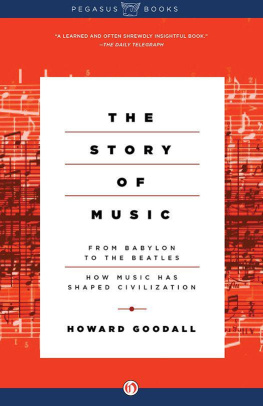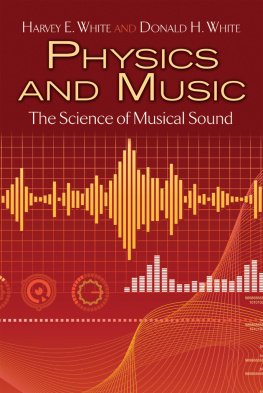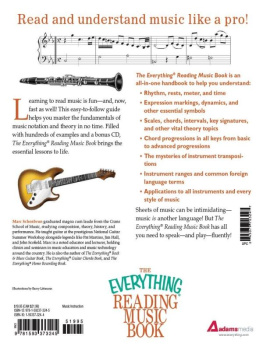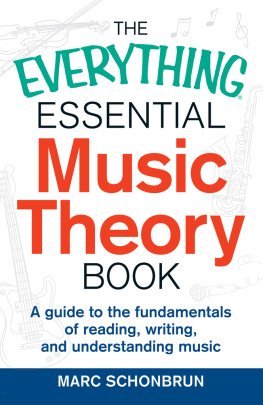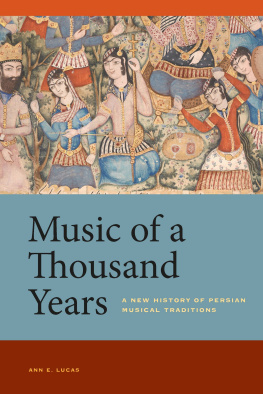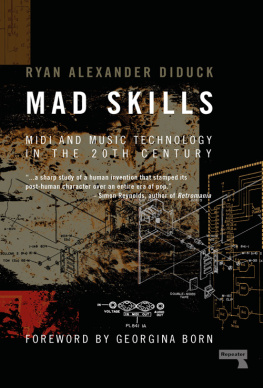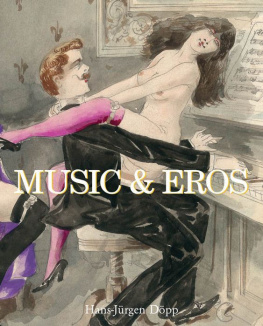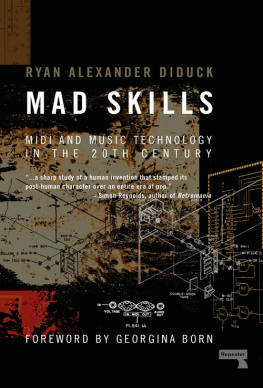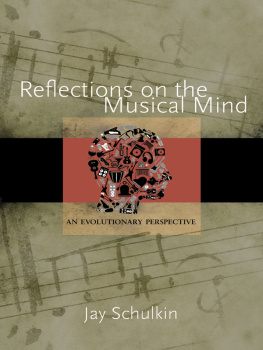The Story of Music
From Babylon to the Beatles: How Music Has Shaped Civilization
Howard Goodall

To Val, Daisy and Millie, with love
Contents
Introduction
PERHAPS YOUR FAVOURITE MUSIC was written by Monteverdi in 1600, Bach in 1700, Beethoven in 1800, Elgar in 1900, or Coldplay in 2000. Whichever it is, it is a sobering fact that everything that had to be discovered to produce that music its chords, melodies and rhythms had already been discovered by around 1450.
Of course I dont necessarily mean the instruments people used, or the countless quirky creative decisions that make each song, concerto or opera sound distinct and characterful, but rather the raw material: the building blocks of music. In order for Mozart to thrill audiences with just three dramatic chords at the start of his opera Don Giovanni, someone had to come up with the idea of playing more than one note at a time. In order for Gershwin to give his song Summertime its enchanting see-saw accompaniment, with the high solo voice gliding in way above it, someone had to work out the alchemy of harmony and the seductive lilt of rhythm. And in order for me to sit at a piano and play those two masterworks in the comfort of my own home instantly and just as the composer intended someone had to work out a way of writing the notes down, alongside performance instructions.
Indeed, it is easy to overlook how utterly spoiled for musical choice we are in the twenty-first century. We can listen to almost anything we want at the press of a button. But as recently as the late nineteenth century, even the most devoted music lover might hear his or her favourite piece just three or four times in his or her whole life. Unless you happened to be a virtuoso musician with access to both sheet music and instruments, it was almost impossible to bring large-scale forms of music into your own home. Not until the dawn of recording and radio technology did our ancestors have any great choice as to what they listened to and when. If you like, it is only since recorded music has been available to buy that music has become democratic, something that everyone can influence and participate in by showing their preference for one song, or one style of music, over another.
Inevitably, though, this democratisation brought along with it its own new problems. Once, musical fashion and taste were dictated by a few wealthy patrons and institutions who might, in prosperous times, allow composers some degree of freedom to experiment without fear of starvation. But what became known as the popular age unexpectedly threw up a division between modernist music in the classical tradition and contemporary music of a more accessible kind. Even within the classical tradition the weight of the past bore down heavily on living composers, as the vast repository of old music was recorded and rediscovered. Classical music might well have died out entirely had composers not turned their resentment into resourcefulness and reconnected with audiences by cross-pollinating with other genres; modern film music is just one example of classically inspired sounds being aligned with popular art forms of the present day This instinct to adapt and move with the flow has been particularly vehement and particularly necessary in the past hundred years or so, but it has always been a fact of musical life. If composers of all eras had been unwilling to learn, invent, borrow and even steal, we might still be listening to plainchant. Collectively, they made the mainstream sounds of contemporary Western music possible.
What we call Western music the medium in which nearly all music on earth is now conceived, recorded and performed, and which has in the past hundred years or so absorbed into its fold most of the other music cultures of the world started out as merely one localised branch of a global musical map. European-Mediterranean tribes had their particular brand of music much as African, Asian, American and Antipodean tribes did (and still do). What became the generic category Western music was an amalgam of, among others, Egyptian, Persian, Greek, Celtic, Norse and Roman strands of music. It started, though, just like all the worlds traditional music cultures: improvised, shared, spontaneous and transient.
The other great musical cultures of the world, because they continued to be improvised, aural traditions handed down from parent to child, have carried on to the present day much as they had for millennia. Indonesian and Balinese music, for instance, can still be heard in forms that have remained unashamedly unchanged for centuries. The branch of music that thrived from Iceland to the Caspian Sea, though, did not stand still. A series of revolutions took place that gave it remarkable new capabilities. This is not to say that Western music, as we have inherited it, is better than, say, Indonesian music. Rather, it is an unavoidable historical truth that the Western branch of musical activity developed in ways that were not paralleled in other musical cultures. Gradually, but with a great spirit of determination and invention, the language and method of Western music became universal standards that could be adapted to accommodate, so it now seems, every musical idea on earth.
And yet the telling of musics extraordinary unfolding story is for anyone, more or less, who hasnt taken a degree in it a mystery. Worse, it seems to be a deliberate mystery, shrouded in arcane jargon and bewildering categorisation, the shrine and preserve of a club of privileged insiders.
We have inherited a series of inaccurate and confusing historic labels by which classical music is catalogued, almost none of which describes what was actually happening in music at the time. Take the Renaissance rebirth a period between about 1450 and 1600 in which art, architecture, philosophy and social attitudes made enormous leaps forward. While it is true that music underwent its own transformation in this period, its greatest revolutions the invention of notation, of metrical organisation, of harmony and of instrument construction had already taken place during what was, in many other aspects of life, the long, dark, ignorant night of the Middle Ages. The chief movers and shakers of the Renaissance (none of whom, by the way, was a musician) were inspired by the example of Ancient Roman and Greek Classical civilisation, although it is not until the later eighteenth century that we come to the Classical era in music, which has inconveniently lent its name to the entire branch of Western music that isnt popular. Between the two we have the Baroque era, characterised by gaudy excess and decorative indulgence in art but by purity and economy in music.
Then there is the chaotic mislabelling of the notes themselves. Musics longest-duration note, for instance, is called a breve, meaning short. A breve can be subdivided into 4 minims, meaning shortest of all even though it can be further broken down into up to eight subdivisions. The note known as a quaver in English is in French called a croche, the Anglicisation of which, crotchet, has come to mean a note of double the value of a croche. The Germans and Americans call two crotchets a half-note, while the French call half a croche a double-croche, a crotchet a noire (black) and a minim a blanche (white) even though they are not the same as the black and white notes on a keyboard. The list goes on.
Anachronisms and blind alleys blight all the road signs classical music has given itself. I will tackle them one by one as we progress and attempt to unpick the tangled knot of confusion that they have left in their wake.

